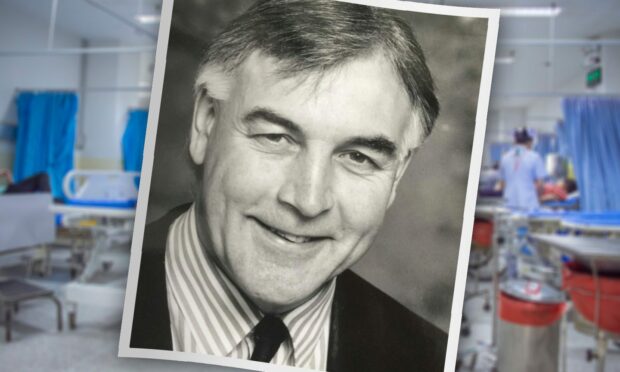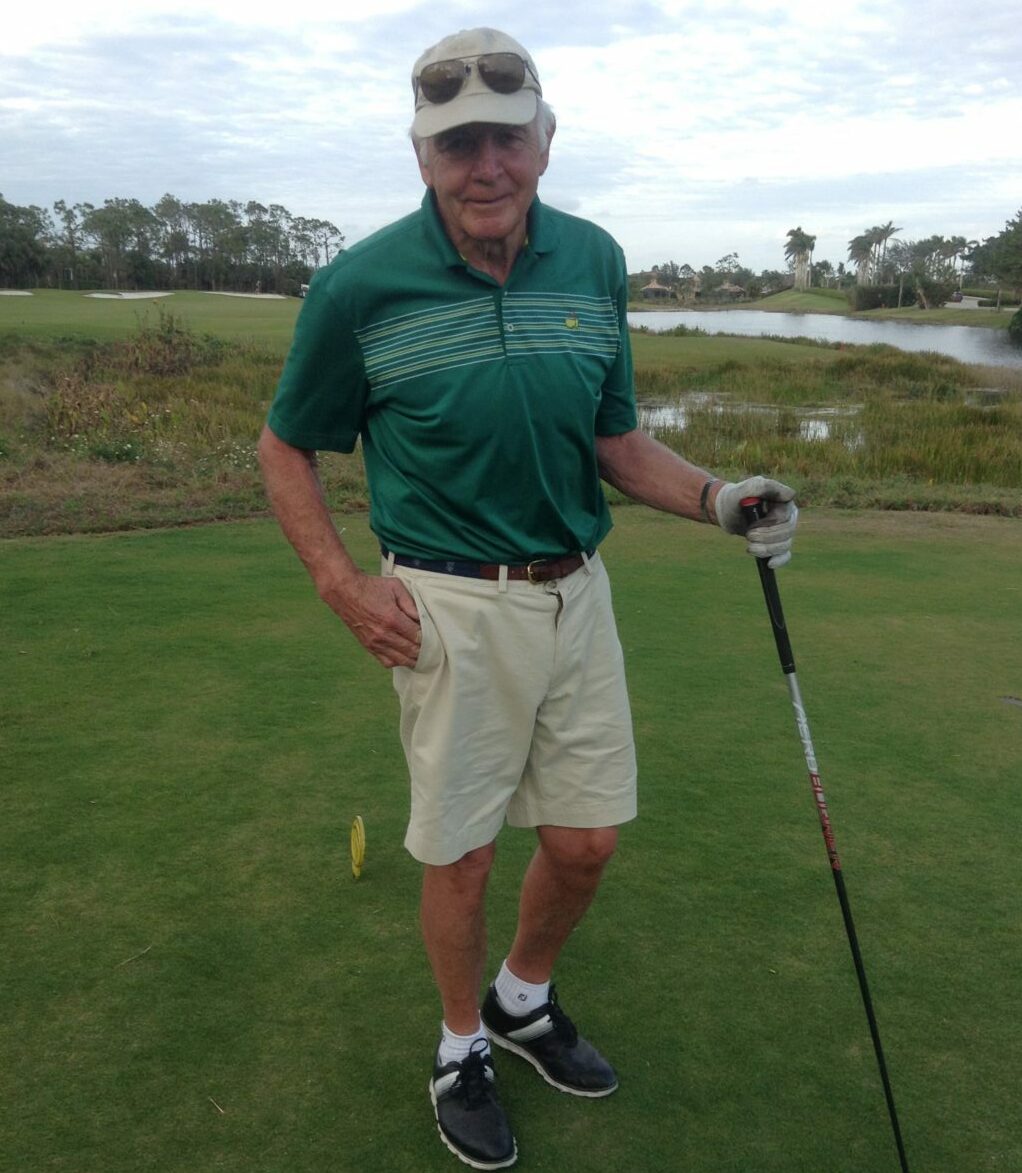Professor Ray Newton, consultant physician at Ninewells Hospital from 1977 to 2003, has died after a long battle with Parkinson’s disease.
He leaves behind his loving wife Sylvia, sons Chris, Jon and Steve, and grandchildren Cameron, Jamie, Graham, Emily, Rachel, Lily and Freddie.
Ray, who was 77, will be remembered for his leadership and outstanding contribution to medicine in Scotland, and in particular his expertise in diabetes and endocrinology.
Most importantly he will be remembered as a kind, compassionate doctor, a physician with the utmost integrity and sense of humour.
Born and raised in Cumberland, Ray attended the University of Edinburgh Medical School from 1963-1969 and spent his early career in general practice, followed by an attachment to the poisons unit at Edinburgh Royal Infirmary.
He arrived at the brand new Ninewells hospital in 1974 expecting to move back to Edinburgh in a couple of years, only to stay in Tayside for the rest of his life.
In his own words: “It would never have been my intention to stay in Dundee in advance of knowing it, but I came to love Dundee. It has been an absolute delight because of the people and my patients.”
He developed a unique lifelong trusted bond with his patients, a relationship rarely seen today. “ I regard them as a fantastic group of people,” he once said.
Ray’s inspirational leadership created an incredibly positive environment for the development of clinical teams, working with colleagues and patients, powering Dundee to become an international centre for excellence in diabetes research, education and care.
Keynote lecture
This was recognised by Diabetes UK when Ray delivered the prestigious Arnold Bloom Lecture in 1999.
He was a towering, humble and unassuming man with time for everyone. He knew portering staff as well as the medical staff, a reflection of the man and doctor that he was, always on hand to help and support others.
Throughout his working life, Ray had a specific passion for innovation and improvement to support young people living with type 1 diabetes who require lifelong insulin injections.
He pioneered new approaches to supporting adolescents, hosting early evening clinics and leading an annual weeklong diabetes camp with Professor Jim Farquhar from Edinburgh.
Motivation and inspiration
Young people from across the UK would descend upon Firbush Outdoor Centre on Loch Tay, learning to mountain bike, sail and windsurf, but most importantly learn to live life to the full with diabetes. It changed young lives forever.
For the last six years of his career Ray was the postgraduate dean of Dundee University and defined new approaches to the training of doctors nationally.
He thoroughly enjoyed both roles but it would never eclipse his commitment and passion for diabetes and his patients.
Outwith medicine he excelled in a number of areas, and was a very talented all-round sportsman.
He represented England Schools and British Universities at rugby, and captained the successful Edinburgh University team which won the Scottish Division One title and was brimming with internationals.
He was undoubtedly destined for further honours had injury not cruelly cut short his burgeoning career.
Leisure time
Following retirement in 2003, he devoted time to both his family and his passions of painting at home and golf at Panmure.
It was only on the golf course where, with a sparkle in his eye, a competitive streak would emerge, ensuring all matches were hard fought.
In his day he was a single figure handicapper, member of The R&A, and captain of Panmure Golf Club.
Illness eventually slowed Ray down, but he fought Parkinson’s with the same determination, courage and humility that he showed throughout his medical career.



Conversation